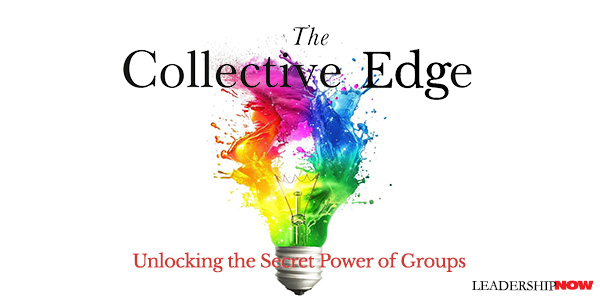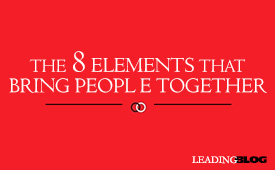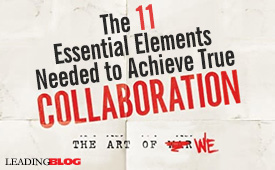
THE group(s) we identify with influence who we are – our thinking and behavior. We are a reflection of the groups we identify with.
In The Collective Edge, Colin Fisher explains that “Understanding human behavior means understanding group dynamics—the obvious and hidden ways in which our thoughts, feelings, and behaviors are shaped by groups.” In addition, “Whether you want to change yourself, your work group, or the world, you need to work with the invisible forces of group dynamics instead of being mindlessly pushed around by them.”
We tend to think in terms of individual actors rather than groups, especially when it comes to leadership. Whether things go right or wrong, we look for individualistic explanations, overlooking the role of groups. Fisher reimagines leadership “not as the province of individual heroes and villains, but as a team sport in which we all do our part to improve and maintain our groups’ fundamental structure.”
Cooperation depends on the group. We tend to overemphasize the individualistic mindset, focusing on the individual rather than the influence of the group the individual is a part of. The answer to many of today’s problems rests in group dynamics. “Groups offer: a vehicle to accomplish what you can’t do alone and provide a sense of belonging.” Under what conditions does effective collaboration take place?
Group synergy requires differences in what people know, think, and do. When a group is too similar in thinking, we get conformity. Too diverse, and the group may struggle to come together, but that’s not always the case.
Conformity is not all bad, as we might first imagine. We need some conformity to cooperate. The need to fit in is one of the most powerful forms of social control over human behavior. “Being a member of a group changes how people see reality. Two groups can see the same event but believe wildly different things about it. Groups are a lens through which members view what is true. When a situation is new and uncertain, norms emerge quickly and most people fall in line rather than sticking up for their own (weakly held) points of view. In fact, many people adopt group norms so quickly, they don’t even realize they changed their own views.”
When we disagree with others, we should become like detectives. “When there’s disagreement, members should ask: ‘Why did you think that? What led you to that view?’” Seek out information before making a decision or judgment.
When adding new members to our group, before rushing in to indoctrinate them, we have an opportunity to learn. In doing so, we help fight conformity. Other people think differently from us, and hearing their perspectives helps us make better decisions.
“Competition is a powerful motivator, but you need to know when it helps and when it hurts performance.” Done right, competition can bring out the best in others. But competition is often not about getting better but winning. Something to keep in mind: “When you are doing well-mastered tasks, competing can spur you on to new heights. But when you are still learning, competing is likely to hurt you.”
The productive side of conflict is called task conflict—differences in ideas—how or what. But when disagreements turn personal, we have relational conflict. Relational conflict derails the group from problem-solving and breeds contempt and the cohesion of the group itself. Group splits are common when relational conflict arises. “Intergroup conflict can temporarily be put aside when we find common causes that allow us to see ourselves as part of a larger, shared group.” We’ve seen too many groups split because they can’t work from what they share in common.
There are people in every group who try to stir up trouble. “They’re the ones who try to keep groups apart and encourage prejudice and conflict. Those who look to blame any problem on the other group and stoke anger. Those who demonize and dehumanize others.” A productive group will keep the conflict focused on the task and not on other people. Fisher says, “The main signs of relationship conflict I look for are personal attributions, or when members start talking about others in terms of traits or dispositions rather than the specific issue at hand.”
Group leadership should be shared. We all share a responsibility to the group. “People use ‘leadership’ as a cognitive shortcut when trying to understand the causes of complex collective phenomena.” We look at the wrong thing.

 Follow us on Instagram and X for additional leadership and personal development ideas.
Follow us on Instagram and X for additional leadership and personal development ideas.




